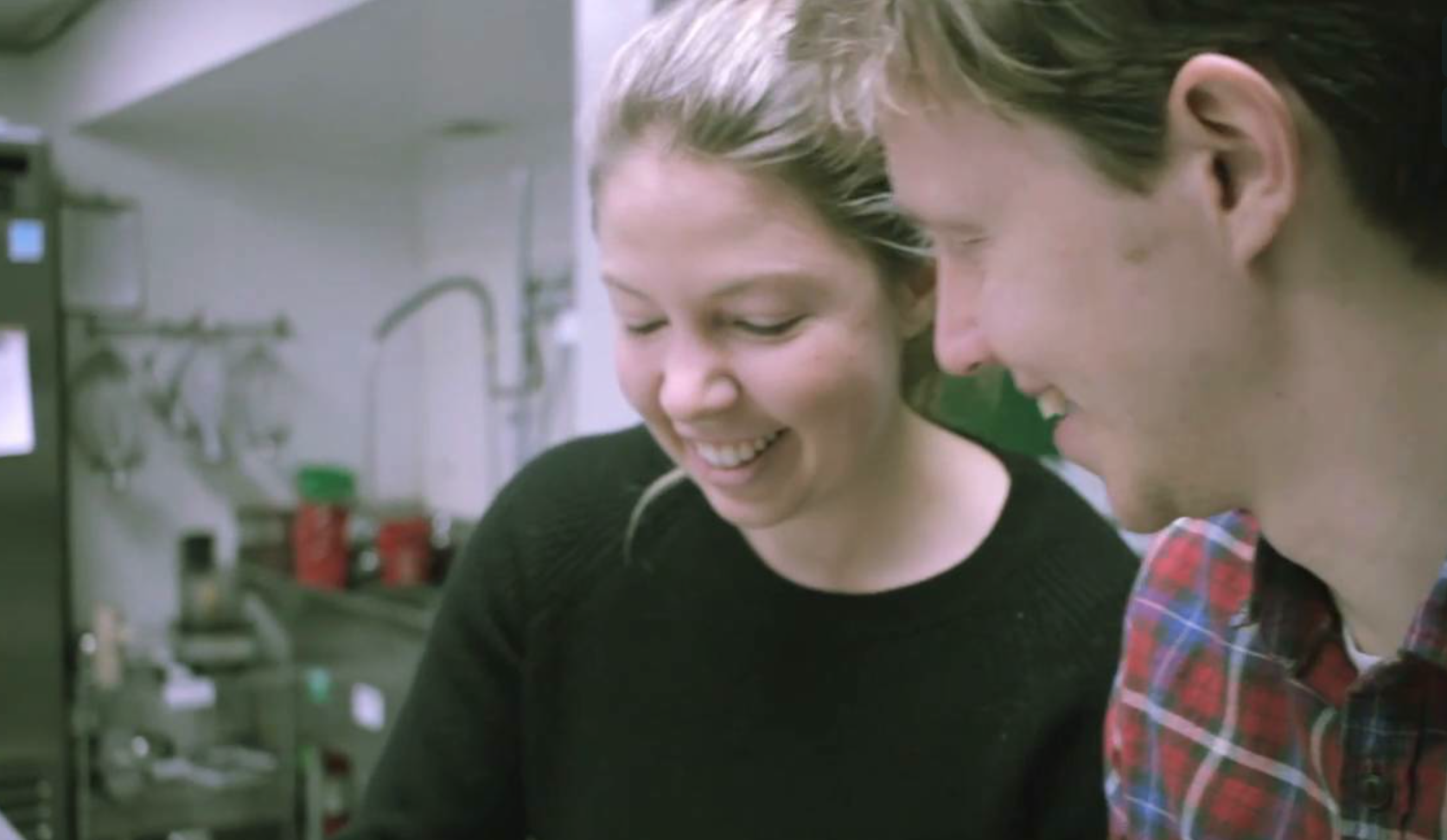Women in Food: 10 Questions with Kaitlin Forster from CHIQS
Being in the food and health world for the past few years (especially in such an online world), I've met tons of fascinating people. But most importantly, I've really met some bad ass women who are killing it in the food as a business world. There are some stories and personalities behind brands that we don't get to hear about often enough. Sure, I can Instagram their product to share it with you guys or tweet about them to show support, but that many characters isn't enough to share the people behind the brand. And that's why I'm starting a new series on Healthfully Ever After: Women in Food- 10 Questions with.... and I have some AMAZING interviews lined up for you. These interviews are short and sweet. The same ten questions for everyone that span from their food trend they love to hate to the most important thing they learned this year.
The very first interview is Kaitlin Forster from CHIQS, a baked chickpea snack company. Kaitlin is from DC and I've had the pleasure of catching up with her in my Georgetown studio in person. She's really badass. Also a lawyer. Learn more about her below!
1. Tell us about yourself and your business.
I'm an attorney-turned-food-entrepreneur originally from Detroit, Michigan. My husband and I live in the Logan Circle neighborhood of DC and enjoy traveling, going for long walks in the city, and supporting other local food businesses.
I launched CHIQS, our baked chickpea snack company, in January this year and have learned so much in a very short amount of time. When I started the company, my main goal was to provide a healthy, portable snack that could power you through your day. In the process of launching and operating CHIQS, however, I've learned so much more about the food system, small businesses, and my own strengths and weaknesses as a person.
2. If you could define your food philosophy in one sentence it would be….
I see food as fuel for my body, so I try to pack as many nutrients as I can into tasty meals and snacks.
3. What are your 3 must have foods in your kitchen?
Fresh greens (kale, spinach, and butterhead lettuce are my favorites!), short grain brown rice, and tahini. I eat endless variations of stir fry and salads using these three staples.
4. It’s your birthday. What are you eating?
Flourless chocolate cake (as dark and rich as possible!) with a hefty dollop of whipped coconut cream.
5. Signature cocktail?
Anything citrusy, but not too sweet. In the summer, I love a margarita on the rocks made with fresh lime juice, agave, and salt on the rim.
6. Food you can’t like no matter how hard you try?
Olives.
7. What are your go-to resources for all things food (websites/magazines/groceries etc)?
101 Cookbooks, Smitten Kitchen, Mollie Katzen, and Food52 for recipe ideas, my local farmer's market in Dupont Circle on Sundays for fresh, local ingredients, Whole Foods and Trader Joe's for staples, and Instagram for daily inspiration!
8. Food fad you wish would die a horrible death?
It's more of a cultural trend, but I wouldn't shed a tear if the bottomless mimosa brunch trend died a horrible death.
9. Must have kitchen tool:
My Vitamix blender! My husband and I got one for our wedding years ago and use it at least once a day. It was worth every penny.
10. What’s the one thing you learned this year that changed the way you think about food?
With food, as with many other things, you get what you pay for. Before starting a food business, outside of a weekly trip to the farmer's market for my produce, I was completely disconnected from where my food came from and how it was produced. After spending time in a food incubator and meeting some amazing food producers, I've learned that great food takes time, skill, imagination, and great (often expensive) ingredients.
By paying a little more for local goods sold by small business, you can enjoy something that wasn't made with unhealthy ingredients in a large, factory setting, and your money goes back into your local economy and encourages further economic growth. While efficiency and mechanization in the food system are necessary for our food to be affordable, communities need to support their local food producers if they want to live in a place that offers delicious and unique food options.
The Story of CHIQS from CHIQS on Vimeo.
Dietitian Nutritionist and cookbook author sharing flavor-forward recipes and simplified science-driven wellness.


